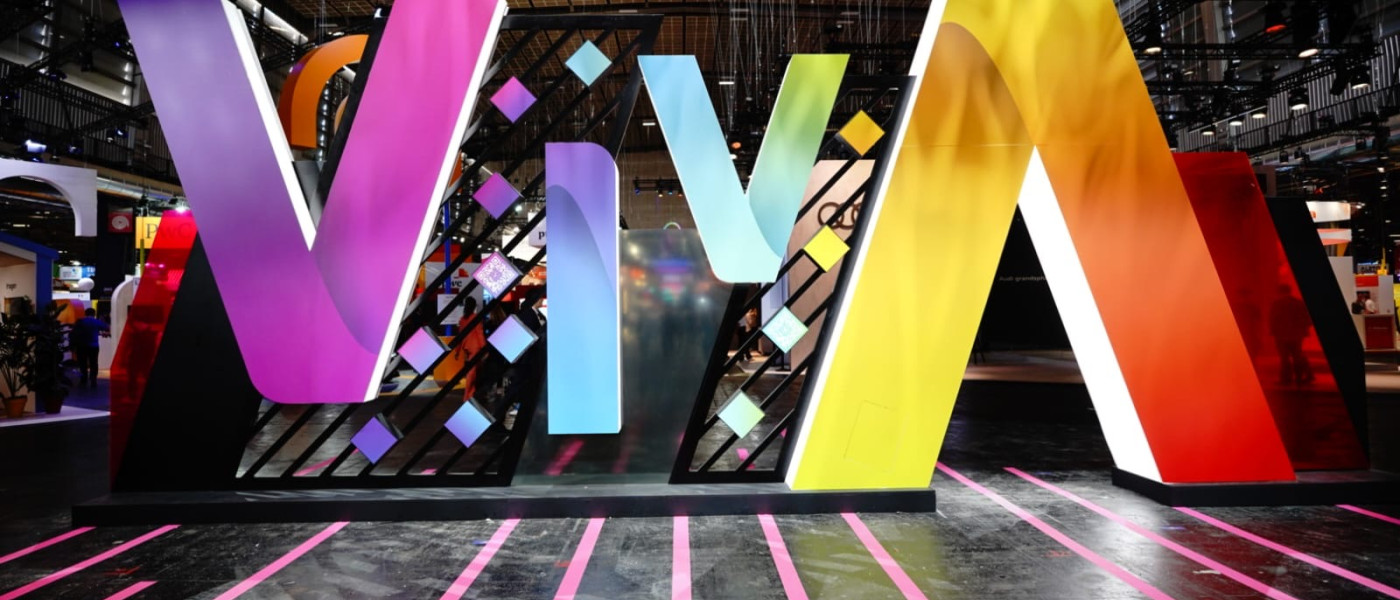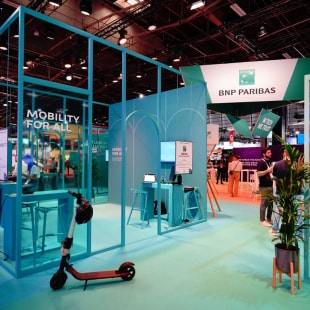1. Artificial intelligence that enhances productivity.
Artificial Intelligence (AI) is undoubtedly one of the hottest topics of the moment. While OpenAI, Microsoft and Meta take centre stage, the development of this technology is so rapid and powerful that it is outstripping all forecasts: just five days after its launch, ChatGPT (Generative Pre-Trained Transformers) counted 1 million users; never has technology spread so quickly. There is an urgent need to understand its potential, but also to identify the issues at stake, particularly in terms of ethics and regulation.
Is generative artificial intelligence (GenAI) about to unleash the next wave of productivity, putting an end to what economists call “secular stagnation”? The latest research from McKinsey & Company suggests that GenAI could make a substantial contribution to economic growth. Eric Hazan and Lareina Yee, partners at McKinsey & Company, point out that generative AI has incredible productivity potential. Indeed, 70% of workers could see AI automating half of their activities thus allowing them to focus on high-value-added tasks. Will AI be an opportunity or a danger for our societies? The debate remains open.
"Artificial intelligence gives us superpowers. It’s up to us to know what we want to do with them. Our collective responsibility is immense " Lareina Yee points out.
2. Investing in Deep Tech to encourage the emergence of innovative solutions2.
Be they in IT innovation, for biological discovery or for solutions that address climate challenges, Deep Tech covers, and opens a wide range of possibilities. These disruptive innovations, which stem from private research, can be slow to emerge and reach the market due to difficulties in finding financing. Investing in Deep Tech companies may seem risky, but for Anne-Sophie Carrese, partner at Elaia Partners, “it's both a challenge and an opportunity to be seized: "The world is facing major issues that Deep Tech is capable of addressing. What's more, public-sector players, such as BPI France and the French government, are showing more interest. It's essential to build bridges between scientists and business players, to encourage the emergence of innovative solutions".
Risking disruptive innovation
For Marguerite Bérard, Head of French Retail Banking and member of the BNP Paribas Executive Committee, "Europe must have control over critical technologies if it is to remain independent of the world's two superpowers". But Europe is lagging. Even though fundraising has increased over the last 5 years despite the current difficult conditions ($23 billion in 2021, $18 billion in 2022), investments over the last three years only represent a third of US investments in this area. This is because funds dedicated to tech in Europe are insufficient, and large investors lack the expertise and risk appetite to invest in disruptive innovations.
"To speed things up, we need to give more support to research in European universities by simplifying and clarifying processes to finance programmes and develop Deep Tech expertise in generalist European funds by creating dedicated teams".
3. Innovate and invest to accelerate the transition to sustainable mobility
Mobility is at the heart of the energy transition. To innovate further and invest massively in creating the conditions for sustainable mobility, “We need disruptive innovations as much as reinvented business models", emphasises Isabelle Loc, CEO of BNP Paribas Leasing Solutions, before insisting: "Investors, start-ups and manufacturers need to work hand in hand. It is through partnership and collective action that we will achieve carbon neutrality by 2050". These investments will enable vehicle manufacturers to change their business models and redirect them towards electric mobility - the number of electric cars is set to increase 10-fold between now and 2025 - and to finance infrastructure to make this mobility accessible and simple for companies and individuals alike.
4. What is "Mobility as a Service" (MaaS)?
This concept offers a unified service that brings together all transport services. The aim is to simplify the experience for users, who can plan, book, and pay for an intermodal journey on a single digital platform.
"The development of sustainable mobility depends on building trust and improving the overall experience," stresses Joachim Reinboth, co-head of automotive and mobility services at BNP Paribas CIB. "To achieve this, we need to approach mobility as a service that is simple, reliable, inclusive and safe". Cities and infrastructure must evolve to encourage low-carbon travel: charging the battery of an electric vehicle can no longer be seen as a constraint. Technology must enable us to deploy these solutions. And innovation continues to open new horizons.
Examples of innovations that are particularly relevant at a time of energy sobriety include recharging stations for vehicles using green hydrogen, and bi-directional batteries, which will make it possible to supply a building with electricity via a vehicle's battery.
5. Sustainable mobility: favouring a global approach
Developing mobility means having an excellent understanding of usage. Data and technology are invaluable assets in monitoring user needs. As a sign that the transition to connected, sustainable mobility is underway, the Arval Mobility Observatory, France’s Fleet and Mobility Barometer reveals that 48% of French companies (44% in Europe) have already implemented connectivity within their fleets, mainly on their commercial vehicles. This is good news for data collection, which will help to optimise vehicle use. Another key point is that more than half of companies have already adopted a 100% electric fleet - an adoption encouraged by tax incentive policies.
Businesses, as levers of transition for society, are also where the multimodal approach to travel can be tested and flourish. For Jonathan Chesneau, Director of Mobility Solutions at Arval France, and Amélie Phelip, Mobility Director at Arval, "sharing, leasing and multimodality are the new standards". Technology and data processing make it possible to develop sustainable, emission-free global solutions for employee mobility.
BNP Paribas at #VivaTechnology 2023
6. Tech and Data, vectors of equality and inclusion
VivaTech 2023 also highlighted inclusion and diversity. FemTech (women in technology) is booming, bringing greater inclusivity and sustainability through innovations aimed at improving the health and well-being of women around the world. "30% of women entrepreneurs want their company to have a positive impact", says Solenne Bocquillon Le Goaziou, founder of Softkids. If Tech is not inclusive, then technologies, particularly artificial intelligence, will be tainted by sexist or minority biases. As such, they won’t meet the needs of a large part of the population. “It's time for women to join technology leadership", insists Mitra Best, Technology Impact Leader at Pw. "We can't entrust our future to people who don't understand our needs", adds Agnès Van de Walle, Director of the One Commercial Partner Entity at Microsoft France & Vice-Chair of the Impact AI Think Tank, and signatory of the "Jamais sans elles" (never without women) charter promoting gender diversity in all sectors of society.
BNP Paribas at VIVA Technology 2023
7. Innovation as a diversity accelerator
Could it be that digital technology accelerates diversity? The answer is a resounding yes! This was promoted by young entrepreneurs, supported by the Diversidays association, who pitched their positive-impact technological solutions: facilitating and securing the delivery of medicines to patients' homes (O’do'Lib), combating food waste (Fullsoon), easing mobility for people with disabilities (Veebya), relieving emergency room congestion (H24 CARE) or taking effective action against bullying at school (KidShare), etc.
Diversity is fuel for innovation and a proven success factor for all organisations. "Without diversity, we can't be innovative", says Corinne de Bilbao, President of Microsoft France, "we have to accept and celebrate difference". So how can we encourage diversity in Tech companies? According to Belen Alomar, Chief Product Officer at Mal: "We need to change our recruitment habits and develop a reflex to look for people where we wouldn't necessarily go naturally". This implies very firm commitment from management: "Diversity is a serious issue, and the company needs to make it a priority. It's important to be prepared to make clear commitments and have uncomfortable conversations. But we have seen that with more women, our team has improved", says Marcel van Loo, EY's Western Europe Regional Associate Director for Financial Services.
Mobility, Payments, Sustainable Development & Sustainable Finance: discover the 13 start-ups partnering BNP Paribas at #VivaTech 2023 :
MOBILITY
- SIKO MOBILITY an all-inclusive electric vehicle rental platform for professionals and private individuals, whose fleet is managed via blockchain ;
- ARVAL CONNECT a powerful solution to help Arval customers control their fleet costs better and accelerate their energy transition;
- MOBA specialising in the certification of electric vehicle batteries.
SUSTAINABLE DEVELOPMENT & SUSTAINABLE FINANCE
- SOPHT a start-up incubated by BivwAk! at 'B! Up' (Station F), automates the decarbonisation of IT environments by measuring IT departments’ environmental impact;
- OS CLIMATE was launched by the Linux Foundation with the aim of building an open-source data and software platform to align finance, investment and regulation with climate objectives;
- LITA.CO a responsible investment platform, that gives private individuals the opportunity to become players in the transition by investing their savings in companies committed to society and the environment;
- MANAOS enables investors and asset managers to respond to a wide range of use cases, from better visibility of portfolio composition to ESG data research and reporting, all on a modular platform optimised for flexibility, speed and scalability;
- INSIFY builds and supplies insurance products specially designed for the self-employed and SMEs. Based in the Netherlands and rapidly expanding in Germany and France, Insify aims to modernise the insurance market with a fully digital and transparent experience.
PAYMENT
- STOIK is an insurer that protects and covers companies faced with the risks of cyber attacks, giving priority to prevention. The software developed by KANTOX automates the FX workflow, increases the efficiency of the coverage policy and unleashes the growth potential of companies;
- PAYBYFACE enables customers to pay at the checkout by taking a selfie;
- HOKODO facilitates payment by offering B2B companies and their end customers modern credit solutions;
Based on a Blockchain ecosystem, including several banks in Italy, FLOWBE SOLUTION aims to reduce distance and time constraints between market operators. Flowbe Solution guarantees and certifies the various information exchanges between these players.







